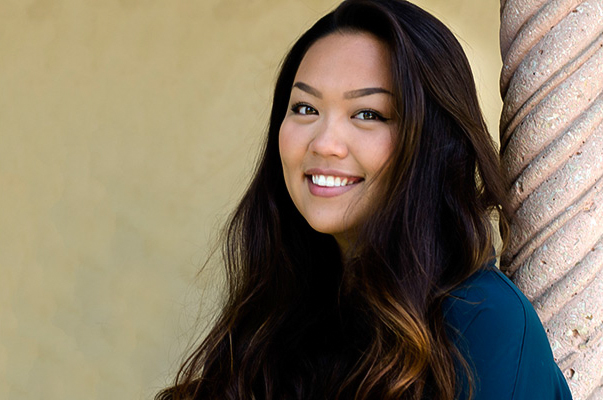
As a child, Melissa Krassenstein’s parents and role models always encouraged her to listen for the voices that often go unheard. Growing up in Shanghai, China, Melissa was also conscious of censorship happening in many social and political contexts.
“By the time I started college at Scripps, in most spheres I entered, I strived to be hyperaware of who might be unheard, marginalized or left behind,” she reflects.
It is unsurprising, then, that in the years that followed, Krassenstein would uncover a passion for listening to the voices of one of the most silenced groups in society—the incarcerated. During her first year at Scripps, Krassenstein signed up for a Core II class partially held in the California Institute for Women (CIW), a women’s prison in Chino, California. She and the other students in the class visited imprisoned women, with whom they created written works.
“The women I had learned so much from at CIW began a paradigm shift in my mind,” Krassenstein explained. “I began understanding them on a human level through proximity, as opposed to indirectly from a distance in academic settings.”
Krassenstein began to be fascinated with different models of prison systems around the world, leading her to declare a major in politics with a concentration in power and justice. In her sophomore year, with her fellow classmate Jing Gu ’16, she created a radio program, With Liberty and Justice for All, which aired in the Los Angeles–area and served as a platform for incarcerated voices. The show aimed to include interviews, stories, poems, and music by people who were previously or are currently imprisoned.
Krassenstein continued her journey her junior year when she studied abroad in Cape Town, South Africa. She chose this destination in part because of its history rooted in colonialism and apartheid, which manifests in continued racial hierarchy to this day.
“I wanted to learn more about another country’s system of punishment, and I wanted it to be a country that has some relatable themes to that of the United States,” she explains.
During her time in Cape Town, Krassenstein interned with the organization Young in Prison, where she facilitated creative workshops in various prisons and juvenile detention centers within the city, including the Ottery Youth Care Centre. There, she discovered that juvenile incarceration was based on principles of restorative justice and positive reinforcement, which more successfully reintegrated formerly incarcerated youth back into society. After returning from her study abroad, Krassenstein gained insight into the juvenile incarceration system in the U.S. when she began volunteering with Camp Afflerbaugh-Paige, a juvenile probation camp located in La Verne, California.
The accumulated knowledge and experiences led Krassenstein to write her senior thesis, A Call for Dreams and Imagination in Juvenile Justice Abolition: A Reimagined System of Rehabilitation for Youth in Los Angeles. Much of the inspiration for her thesis came from her observations of the effectiveness of the rehabilitative incarceration model in South Africa, which she believes can be applied to systems within the U.S.
“This is a work I am very passionate about continuing and is part of a plan I am devoting my life to, accepting any turns and challenges along the way,” she said.
Krassenstein’s passion will carry her back to South Africa following graduation, where she will work on two self-designed projects in the realm of alternative juvenile justice models. She was awarded the Napier Initiative fellowship for one project, “Documenting Rehabilitation of the Ottery Youth Care Centre Juvenile Justice Model,” as well as the Davis Projects for Peace award for another project, “Rising Sisters, Rising Communities: An Empowerment Program for Formerly Incarcerated Young Women in South Africa.” For the Napier project, Krassenstein will create a film demonstrating the strategies of the Ottery Youth Care Centre to complement her written thesis. She hopes that the film will provide additional insight as to what a reimagined justice system might look like in the U.S.
“If people in my community—and in communities beyond my own—can begin to have the kind of shift I had in my interactions with incarcerated people, perhaps then a bridge between those locked away and the outside world can begin to develop and surrounding communities can take part in the healing process.”
For her Davis project, Krassenstein will create a workshop series targeted towards empowering formerly imprisoned young women by connecting them with community partners and resources and developing a culture of healing and self-care. With $20,000 in combined funds from each fellowship, she will be able to spend the next year in South Africa.
Krassenstein credits much of her growth in her time at Scripps to her interactions with her peers both inside and outside of the classroom. Although she is looking forward to carving out her own path in the coming years, she says she will miss the encouragement of the Scripps community.
“This community has dared me to dream and reaffirmed a revolutionary side to myself that I was always too nervous to grow into,” she reflects. “I’m going to miss this space where my peers have become my mentors, and my mentors also seek to be my peers.”
For more about the Class of 2016, click here.

